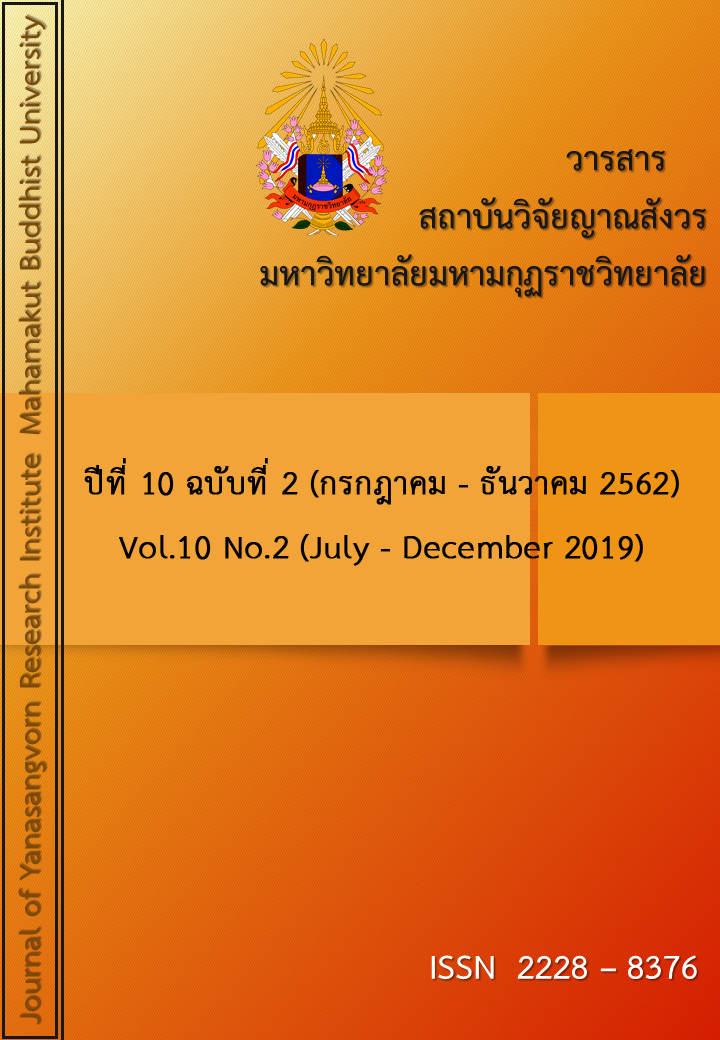HUMAN RESOURCE DEVELOPMENT IN THEMAHAMAKUT BUDDHIST UNIVERSITY IN ACCORDANCE WITH THE THREEFOLD TRAINING (TISIKKHA)
Main Article Content
Abstract
This research article had the objectives as follows: 1) to study human resource development, 2) to study factors of influence, and 3) to propose guidelines for human resource development in accordance with the threefold training (Tisikkha). In this research, the researcher had 232 population. The data collection tools were survey feedback questionnaires with the reliability of 0.96 and the in-depth interview form. Data analysis in the research were percentage, frequency, average, standard deviation and multiple regression analysis by using stepwise multiple regression analysis technique. The research was found that the overall guidelines for academic human resource development were at a high level. When considering each aspect –the Aspect of the Organizational Policy, the Aspect of Training, the Aspect of the Organizational Culture, the Aspect of the Organizational Leadership, and the Aspect of the Organizational Technology, were at a high level, while the Aspect of Education Development was at a medium level. As for human resource development in accordance with the threefold training (Tisikkha), the overall was at a high level, namely the precepts, the concentration and the wisdom. Multiple regression analysis was found that Organizational Leadership variables and the Organizational Technology variables had Influenced academic human resource development in accordance with the threefold training (Tisikkha) in the overall with statistical significance at the level of 0.05 From the equation, it could be predicted the variation of academic human resource development in accordance with the threefold training (Tisikkha) had Standard Error of the Estimate equal to 0.217. The variables that influenced academic human resource development in accordance with the threefold training (Tisikkha) in overall were the Organizational Leadership variables, followed by the Organizational Technology variables respectively.
Article Details
References
ประวัติมหาวิทยาลัยมหามกุฏราชวิทยาลัย http://www.mbu.ac.th
พระธรรมปิฎก (ป.อ. ปยุตฺโต). (2539) การศึกษาเพื่ออารยธรรมที่ยั่งยืน. พิมพ์ครั้งที่ 3. กรุงเทพมหานคร : บริษัทสหธรรมิก จำกัด,.
วิเชียร วิทยอุดม. (2547) พฤติกรรมองค์การ. กรุงเทพมหานคร : ธีระฟิล์ม และไซเท็กซ์จำกัด.
สมาน รังสิโยกฤษฎ์. (2530) ความรู้ทั่วไปเกี่ยวกับการบริหารงานบุคคล. พิมพ์ครั้งที่ 3. กรุงเทพมหานคร :สวัสดิการสำนักงาน.
สุนันทา เลาหนันทน์. (2546) การบริหารทรัพยากรมนุษย์.(พิมพ์ครั้งที่ 2). กรุงเทพมหานคร : ธนะการพิมพ์.


